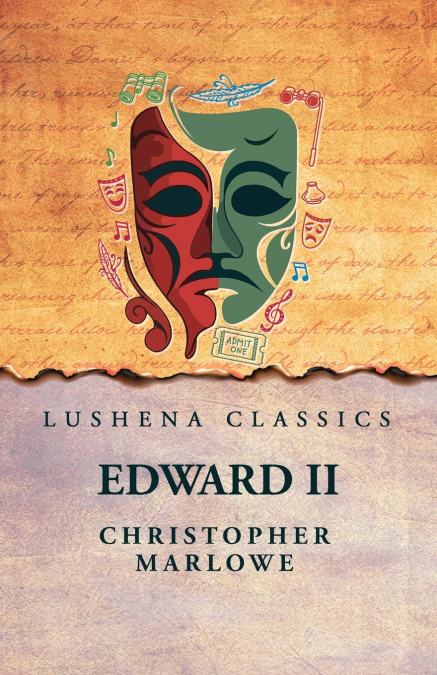
Christopher Marlowe
Edward II is a history play by Christopher Marlowe, written around 1592. It dramatizes the troubled reign of King Edward II of England (1307-1327) and his downfall, focusing on themes of power, favoritism, betrayal, and the consequences of personal desires conflicting with political duties. The play is notable for its intense character conflicts and its exploration of same-sex relationships, particularly Edward’s bond with his favorite, Piers Gaveston.King Edward II ascends the throne after his father’s death. Ignoring state affairs, he recalls his exiled favorite, Piers Gaveston, whose close relationship with the king enrages the nobles. The barons, led by Mortimer and Lancaster, see Gaveston as a corrupting influence and a threat to their power. Edward’s queen, Isabella, also grows jealous of Gaveston’s hold over her husband.Tensions rise as the barons force Edward to exile Gaveston again. Isabella, initially loyal to Edward, tries to mediate between him and the nobles, but Edward’s obsession with Gaveston leads to a deeper rift. Eventually, Gaveston is captured and executed by the nobles.Devastated by Gaveston’s death, Edward seeks vengeance, leading to civil war. He finds a new favorite, Spencer, but his reckless rule weakens his position. Meanwhile, Isabella, rejected by Edward, allies with Mortimer, her lover, and travels to France, gathering an army to overthrow her husband.Isabella and Mortimer’s forces invade England, capture Edward, and force him to abdicate in favor of his young son, Edward III. The fallen king is imprisoned, while Mortimer and Isabella take control of the kingdom.Edward is brutally murdered in prison (historically rumored to be killed with a red-hot poker, symbolizing humiliation). However, Isabella and Mortimer’s triumph is short-lived-Edward III, now of age, avenges his father by executing Mortimer and imprisoning his mother.Unlike Marlowe’s earlier protagonists (Tamburlaine, Doctor Faustus), Edward II is not a powerful hero but a weak, emotionally driven king. His love for Gaveston is sincere but politically disastrous. His downfall is tragic, as he loses everything-his crown, his dignity, and ultimately, his life.While based on historical events, Marlowe takes dramatic liberties, especially in portraying Edward’s sexuality more explicitly than historical records suggest. The play was groundbreaking for its time, offering a nuanced depiction of same-sex love and political intrigue.